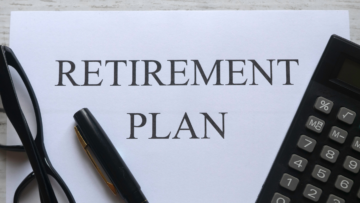Taking the time and planning for retirement isn’t just a luxury. It is a necessity. However, it can be confusing. As a result, there are several common mistakes people make. Each mistake on its own can severely affect your retirement lifestyle. Making several can mean total derailment.
Retirement may seem a while off and far removed from your day-to-day concerns. And yet, this is actually the best time to start planning and saving — that is, when you still have time to accumulate the money you’ll need. If you’re approaching your golden years, it’s more important than ever to get your retirement plan right before it’s too late.
Here are some common mistakes that retirement advisors see all too often that throws people off course in their retirement planning. Knowing these pitfalls should help set yourself up for the retirement you’ve always dreamed of.
1. Investing Over Planning
A retirement plan is one of the best ways to spot potential hurdles to long-term goals, but pre-retirees sometimes make the mistake of prioritizing investing over planning. However, focusing on investments can actually distract us from sound retirement planning. Trying to figure out investments could result in you spending way too much time on technicalities that don’t really matter in the big picture. But creating a retirement plan means estimating future expenses and expected income — the factors that truly matter.
Solution: Focus on what you can control. You can control your own strategic behavior, but you can’t control what the market does. You also can’t invest your way to fulfillment or contentment. You need to find out what it is you’re trying to accomplish in life, because that has a much bigger impact on your retirement verses what stocks and bonds you’re invested in.
2. Borrowing from your Retirement Plan
Dipping into your 401(k) plan is generally a bad idea, according to most financial advisors. But that advice doesn’t deter about a quarter of the people who hold one of these accounts from making a raid on their funds. We understand emergencies happen, but people sometimes pull money out of retirement accounts when it’s not necessary. Unless you absolutely need the money, try not to use this option. Why? Because doing so triggers taxes and a potential 10% penalty. Depending on your tax bracket, you could wipe out close to half of what you’re withdrawing with taxes and penalties.
Solution: Many QRPs offer loans to participants. If it’s a necessity to borrow, first consider that you’ll have to repay the loan with after-tax dollars, and you could lose investment earnings on the money while it’s out of the account. Ideally, bank some savings separately for emergencies, and save up for your financial goals independently.
3. Understanding the True Cost and Length of Retirement
Think about what retirement costs. It’s obviously a very complex consideration, and it’s important to put it in perspective. According to an Age Wave/Merrill Lynch report, 81% of Americans report not knowing how much money they’ll need for retirement. If you don’t know how much you’ll need, you can’t know if you’ve been saving enough. Retirement for most people will cost over $1 million – over an average of 30 years – to provide them with income for life, adjusted for inflation. For a lot of individuals, that’s covered through things like Social Security or pensions, but still retirement is the most expensive purchase someone’s ever going to make.
Solution: So if you’re among those who don’t know how much money they need for retirement or who don’t think they will have enough money, what should you do? Fortunately, you’re probably not doomed. There are many ways to generate more income in retirement, such as delaying retiring for a few years, working in retirement, and perhaps getting a reverse mortgage.
It’s also quite effective to save more aggressively, no matter how old you are now, and to invest that money effectively. Read more on how much you need to save for retirement here.
4. Failing to Create a Dynamic Retirement Plan
‘Failing to plan is planning to fail’. You may have heard that saying many times before. But when it comes to your money, are you ready to retire? Ask yourself these questions to find out:
- Do you know where your income will come from after you retire?
- Will be enough to meet expenses? Furthermore, do you have any idea how much you’ll actually need?
- Have you decided what you want to do with your golden years and figured out how you’ll pay for it?
- Are your investments suitably liquid so you can meet any unexpected expenses?
- Do you have a plan for minimizing taxes, both for yourself and your heirs?
- Have you planned for what could happen if your health goes bad, or your spouse passes away?
- Are your retirement accounts protected from inflation?
If you’re unsure of any of these questions it’s time to take action.
Solution: Create a financial plan! A proper plan, when made with the help of a reputable financial planner, will help you:
- Bring you fresh new ideas for your retirement income.
- Know how much money you’ll need to meet your expenses and reach your goals.
- Design a plan to limit downside stock market risk.
- Know where that money can and should come from. Having a plan can show you how much income you need, how much you should save, and what expenses might need to be cut.
- Choose the right investments to provide the income you need, at a suitable, specific level of risk.
- Protect your assets while providing you with strategies for achieving effective tax reduction and inflation protection.
- See what areas of your finances are stable and which may need improvement.
Planning ahead, knowing exactly what steps to take and when to take them, is the ultimate tool to success. If you’re looking for an experienced financial advisor to help you stay accountable, we are now accepting clients in our firm for 2020. Contact us today to set up your complimentary strategy session and for any additional details you may require.



